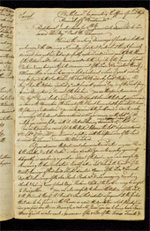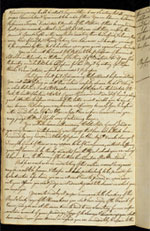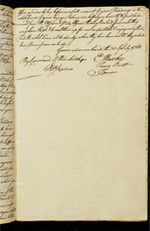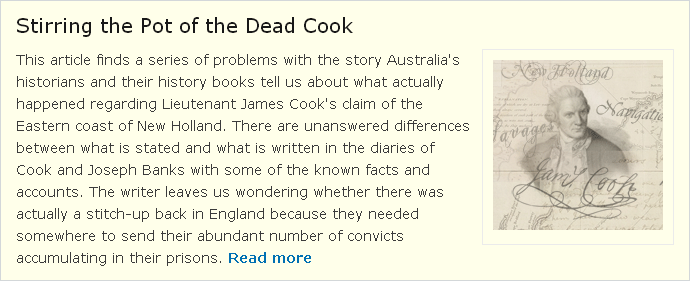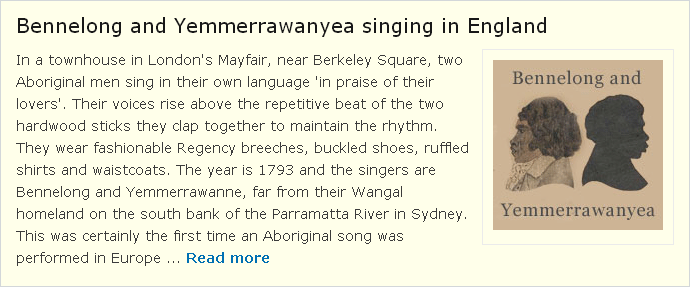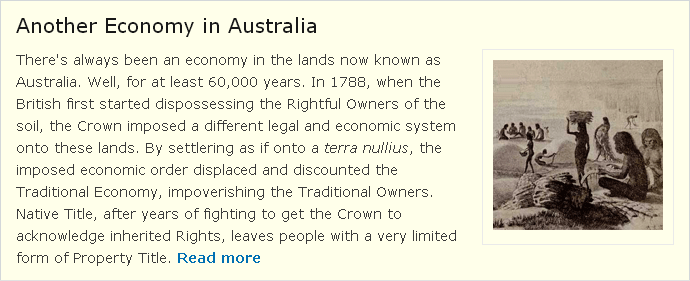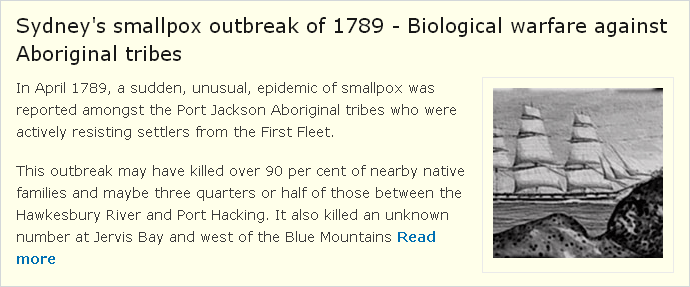Crown's sneaky Radical Title sits under First Nations Sovereignty
Under the Doctrine of Discovery, which came from the Papal Bull meaningPope Alexander VI issues a papal bull or decree, “Inter Caetera," in which he authorizes to colonization of Native peoples as subjects. The decree asserts the rights to convert, and enslave. Native VoicesPapal Bulls of the 1400s, European Christian Nations could claim Radical Title meaningIt is argued that, as a legal concept, radical title is a bare legal title which does not automatically confer beneficial ownership of the land to which it relates. ResearchOnline JCURadical Title over undiscovered lands. It was a competition between the European Powers, but it didn't offer full ownership of the lands or the people. When the Crown claimed the lands now known as Australia, Radical Title was deceptively stolen from the Dutch, and then the Crown imposed Sovereignty as if they owned everyone and everything on these lands.
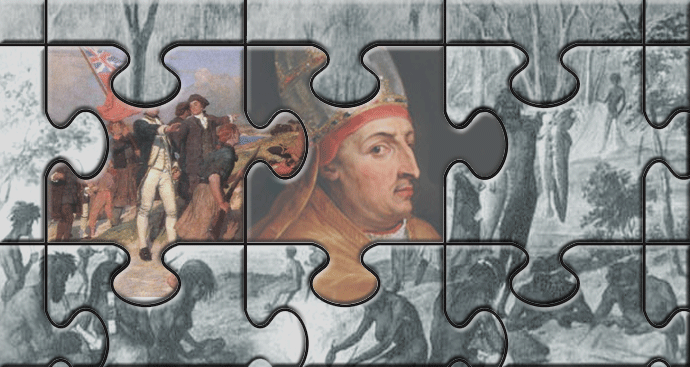
"You might ask yourself, How did I get here?" quote from the Talking Heads' song "Once in a Lifetime"
In Australia, voting is compulsory, but regardless of who gets elected, those elected must pledge allegiance to the Monarch of Britain.
So how did we get here? How did a continent inhabited by People with very dark complexions get to have the White Australia Policy?
It's a sad and sorry tale of fraud, deception and an elaborate hoax. The imposed rules by which Britain colonised these lands favoured the most racist people who arrived here to do the Crown's dirty work, and the Empire's rules have shaped the Settler (sic) society to this day.
It's instructive to unpack "Radical Title" from "at Sovereignty"' the latter being a term used by judges and politicians as if an a priori truth that cannot be questioned, and perhaps for them, it can't be. They've pledged allegiance to the Sovereign of Britain and their job depends on it.
In many ways, "at Sovereignty" which is used to legitimise the Sovereignty of the British Monarch over the lands now known as Australia, seems to be a tool of obfuscation to confuse people as it's meaning seems to keep changing.
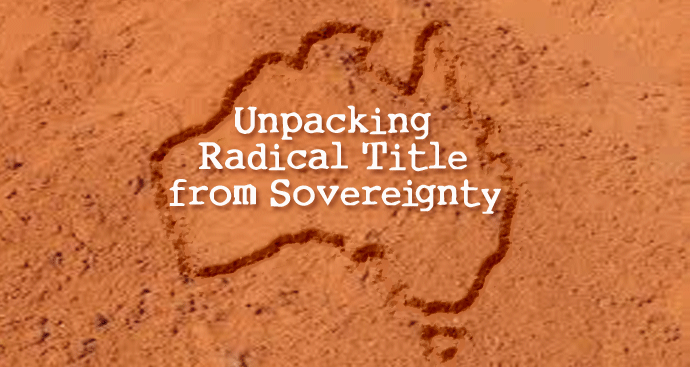
Radical Title is how European imperialists claimed the right to all the other lands as colonies of the European Empires.
This stems from the Papal Bulls from the 1400s that are known as the Doctrine of Discovery. It's why they say Australia was discovered by Captain Cook in 1770.
Radical Title to the lands now known as Australia must've been held by the Dutch Republic, prior to Cook's 1770 voyage, and up until 1788, even if Britain declared Radical Title over half of New Holland before the First Fleet had left England. This was done as if the lands on the east coast of New Holland were not part of New Holland, yet Cook was very clear about his charting of it being the east coast of New Holland in 1770.
To make this claim by Radical Title, Britain inferred that Lieutenant James Cook had somehow defied his Cook's Secret InstructionsCaptain Cook carried with him sealed secret instructions from the Admiralty on his 1768 Voyage to the South Pacific. Read Secret InstructionsSecret Instructions and claimed lands on the east coast of New Holland, and it seems that they "reverse engineered" evidence to trick other European powers.
Of the three known copies of Cook's Journals. the one held at
Royal Library at Windsor Castle, and was presented to the National Maritime Museum at Greenwich by King George V in 1935. I call it the Greenwich MS. When I assembled the microfilms and did the collating I found it was a queer, a maddening amalgam: for it is not a straightforward copy of the journal at all. It is partly log, partly journal, in three or four different hands, and ends up as a very bad and careless copy altogether.
"The two first-mentioned Journals are in the handwriting of an Amanuensis meaningAn amanuensis is a person employed to write or type what another dictates or to copy what has been written by another person. Wikipediaamanuensis, Mr. Orton, the clerk. No autograph journal is, so far as is known, in existence, but some rough original must have been kept, as both copies bear internal evidence of having been written up after the lapse of an interval after the events described.
This is markedly the case in the Australian part of the Journal.
It is known that Botany Bay was at first called by Cook, Stingray Bay, on account of the number of rays caught there; but after Banks had examined his collection, and found all his plants new to science, Cook determined to call it Botany Bay. It is, however, called Botany Bay from the first in the Journals."
In Europe, Holland had been weakened as a European Power by the 4th Anglo Dutch War which Britain had declared in 1780, and Britain began claiming Radical Title over many of the Dutch Colonies in South America and other places during this war in the early 1780s. It's noteworthy that Lord Sydney and Arthur Phillip were involved in this war, which was essentially between competing European Powers, but the Treaty of Paris of 1784, saw an end to hostilities, which ended the US War of Independence, and the separation of present day Canada as a British Territory from the newly independent US. The Treaty of Paris 1784 was signed by the Dutch Republic, France, Spain, the US and Britain.
However, by 1786 Britain began writing of "Our Territory called NSW" which is a claim by Radical Title over some of New Holland. Instructions to Governor Phillip April 1787 detail the scope of this claim to be the whole eastern half of the continent. The motive seems to have been due to internal socio-political problems in the UK, and a solution of somewhere to transport felons was pushed by Merchants and Bankers and authorised by King George the 3rd. It was due to Britain's need to find a new dumping ground for it's underclass, that Britain breached the Treaty it had signed a year or so before.
The class driven culture within Britain caused social problems which Britain had become accustomed to exporting elsewhere, but they had nowhere left to dump those who had been sentenced to "Transportation", so they eventually decided on Botany Bay, and then made out that New South Wales was "discovered" by Cook and was somewhere other than New Holland.
The Crown had tried to purchase/rent an island in the Gambian River, but after negotiating a price for the island with a local Chief, the folks on the other side of the river said "that's our island" so the price went up considerably. The tribes on each side of that island, the Wulli and Niani tribes were hostile to one another. This island is now known as McCarthy Island.
Those in England sentenced to Transportation were terrified of being sent to where they 'could be eaten by savages', and transportees on one of the transport ships mutinied and sailed off to America. So Britain then decided on Das Voltas (present day Namibia) as the place to dump their Convicts, unsupervised. Das Voltas is desert and the Transportees would have perished. So at some time soon after the Beauchamp Committee of 1785, which was tasked with finding a new place to dump convicts, they then decided on Botany Bay. No Report on the findings of the Beauchamp Committee was published, but they had interviewed Joseph Banks and James Matra (both on Cook's 1770 visit) and the Committee's preference then was for Das Voltas.
Lord Beauchamp, in view of the negative testimonies given for Lemane, (on the Gambian River) recommended that that island not be used, however, the idea of sending criminals to some point in Africa was not totally disbanded and Beauchamp mooted the Bay of Das Voltas. This area was known of by Lord Sydney and with William Pitts's backing a ship was sent immediately to investigate the area with Joseph Banks supplying a suitable botanist to survey the area, but the results were discouraging and hence dropped as a site for a convict settlement despite prepared plans to send a shipment of over 1000 felons there. This negative report was to prove to be another setback for Lord Sydney who was the one principally in charge of the problem and for Evan Nepean who appeared to do most of the groundwork.
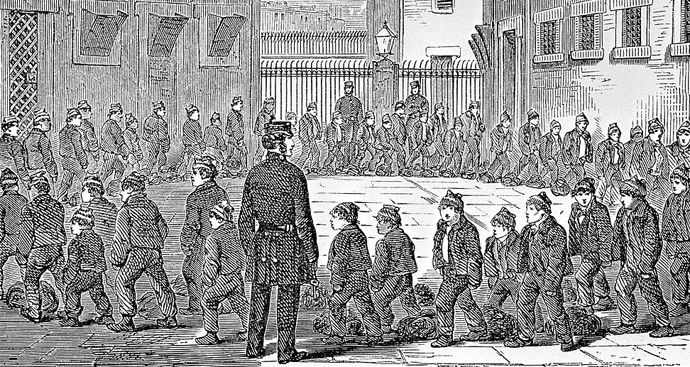
Male children in England's Tothill Fields Prison in the Westminster area of central London around the late 18th century
The pressures of finding a suitable and lasting solution to the problems caused by the Hulks and prison overcrowding, increasing lawlessness and lack of deterrent punishments available made the urgency even more acute and other matters that arose in the Beauchamp Committee gave the final lead for the two to take. Sir Joseph Banks was asked in the Beauchamp Committee what his views on the idea of getting land at the place known as Botany Bay were. He said that there should be no problem attaining the land as the natives there would retreat if threatened and that the area would be suitable for growing appropriate amounts of food and a that a settlement should prosper there. His comments were in line with the thoughts that he had about the place since he was able to think about it more on his journey when leaving the mainland in late 1770 as is confirmed by his journal from the trip with James Cook.
.
Das Voltas would have been a death sentence, which would have made magistrates hesitant to give a sentence of "Transportation" to a certain death. Other people were sentenced to death, but Transportation was for lesser crimes, but Britain still wanted to get these people out of the UK, just not sentence them to death..
On 9 May, 1785, On plans for transportation to Africa ... A letter from Sydney to Lords Treasury, 9 February, 1785. Also, an interim report from Lord Beauchamp dated 9 May. The final report of Beauchamp's Committee was never printed. The committee heard evidence on the desirability of Botany Bay but ignored it and recommended Das Voltas instead. In any "convict republic" the felons were to be left to their own devices, self governing.
Anyway, there was deception and desperation involved when the British claimed Radical Title over half of New Holland 1786/7, just so that Britain had a place to export it's social problems, and having decided on Botany Bay as the only option left, even if it wasn't British Territory, they claimed Radical Title over half a continent to make it look like it was British Territory. Perhaps because it was so far away, and there was an urgency to find a new place for Convicts to be sent, the decided on Botany Bay without even trying to make Rentals, Purchases or Treaties with the resident of these lands, prior to sending the First Fleet.
The Radio Play in the first 10 minutes in the following link offers a likely scenario.
It was also imperative for the British to have their new prison colony seen as a "peaceful settlement" which offers a insight into Phillip's taking Bennelong and Yemmerranyea back to England in 1793.
This "Peaceful Settlement" idea has been a dominant belief within the "Australia's Story" until quite recently, but as more and more reports of the colonial violence now known as the "Frontier Wars" has become known, it's exposing the lie of peacefully settled, the reason for which appears to have it's genesis back in England.
The British King could not just claim to be the Sovereign to another land without a physical presence of Britishers on the lands, so as to have some claim to have it in their control.
This is why 26th January is so precious to the illegal settler state. It's the date of the first continuous physical presence on these lands by the King's Subjects, even if they were only on the lands of one of over 300 Sovereign First Nations, the Gadigal People. By using Radical Title, and by deciding to treat all the peoples in the over 300 different Nations, as the New Hollanders/Natives/Aborigines, as if they were one group of "unpeople" without any rights to property or their own law and culture (as if the lands were a Terra Nullius) the King claimed to be Sovereign over half the continent. This is quite different to how the New Hollanders were treated when Radical Title was held by the Dutch, via VoC, the Dutch East India Company, which traded with the Yolgnu and other Nations across the Northern Coast via the Macassans, and VoC didn't interfere with peoples' Property or Cultural Rights, they just traded.
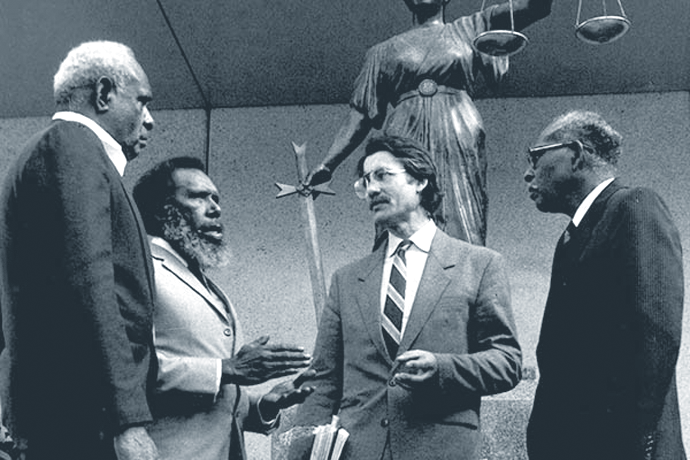
Eddie Mabo, from 'Land Bilong Islanders'. (AIATSIS / Yarra Bank Films)
In the 1992 Mabo Decision, the Colonial Courts said that Sovereignty was asserted on a piece by piece basis as the brutish colonies expanded, since the Crown's claim of Sovereignty over lands for which they had no physical presence doesn't stand in law. It's a contested description of how "at Sovereignty" occurred, so the term "at Sovereignty" gets used as some ultimate truth even if no-one seems sure exactly when or how it happened. The colonial High Court would have no legal standing if "at Sovereignty" isn't in place, so they hide behind "at Sovereignty", and currently use that piecemeal idea to best defend their own position, and that of the Governments here.
Mabo (No 2) the high court said:
The consistent references to "our territory called New South Wales" in the two Commissions(152) 12 October 1786 and 2 April 1787: and in the Instructions 25 April 1787: from George III to Captain Arthur Phillip indicate a view that at least part i.e. the coastline and adjacent islands between latitudes 10 37' and 38 south (see Captain Cook's Journal, perhaps "backed by an unexplored interior": (3) of the new Colony had automatically become British territory in 1770 by virtue of Cook's "discovery" and various pronouncements of taking "possession … in the Name of His Majesty".(4)
In the context of the contemporary international law, however, the preferable view is that it was the intention of the Crown that the establishment of sovereignty would be by "settlement" in the extended sense explained above and would be effected when, after the arrival of the First Fleet, Phillip complied with his Instructions and caused his second Commission as Governor to be read and published "with all due solemnity".(5) Even on that approach, there are problems about the establishment of the Colony in so far as the international law of the time is concerned.
In particular, contemporary international law would seem to have required a degree of actual occupation of a "discovered" territory over which sovereignty was claimed by settlement - and it is scarcely arguable that the establishment by Phillip in 1788 of the penal camp at Sydney Cove constituted occupation of the vast areas of the hinterland of eastern Australia designated by his Commissions. i.e. "all the country inland (from the eastern coastline) westward as far as" longitude 135 east: (6). However, in so far as the establishment of British sovereignty is concerned, those problems do not exist for the purposes of our domestic law.cited page 520, International Law Reports Vol 112, Cambridge.
references
- see Historical Records of Australia (hereafter "HRA"), (1914) Series 1, vol.1, pp 1, 2
- Cook’s Journal ed. Wharton), (1893), p 312
- In re Southern Rhodesia (1919) AC 211, at pp 215-216
- See, e.g., Captain Cook's Journal, op cit, p 312 and, generally, Scott, "Taking Possession of Australia - The Doctrine of 'Terra Nullius'", (1940) 26 Royal Australian Historical Society Journal and Proceedings, 1, at pp 8-9.
- HRA, (1914), Series 1, vol.1, p 9. The Commission was so read and published on 7 February, 1788: HRA, (1922), Series 4, p xiv
- HRA, (1914), Series 1, vol.1, p 2
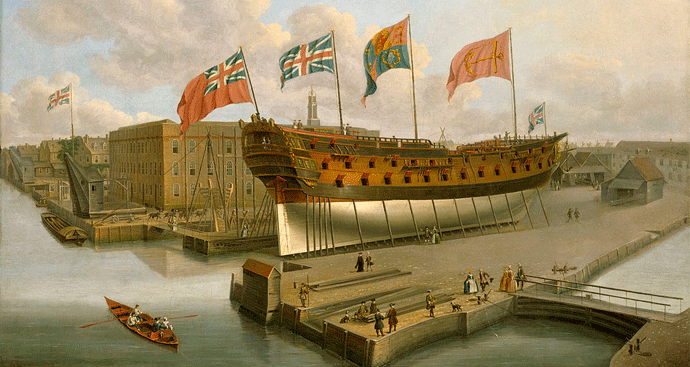
HMS Buckingham pictured on the stocks at Deptford Dockyard, c1751. HMS This vessel was Arthur Phillip's first posting after joining the Navy in 1755.
Naval Captain Arthur Phillip was appointed captain of the Sirius and governor-elect of New South Wales on 12th October 1786. In his Instructions of April 1787, the extent of New South Wales was detailed, and he was to be Lieutenant Governor over the eastern half of the Continent. This seems to be the extent of the initial claim by Radical Title.
The "at Sovereignty" seems to have occurred over the area now known as Sydney from 26th January 1788. The argument cited above, about Cook's "discovery" and various pronouncements of taking "possession....in the name of his Majesty" are probably fraudulent, since Cook and/or crew only ever made it to the mainland twice, the first at Botany Bay to get fresh water, and where on his last day there, his journal reads:
During our stay in this Harbour I caused the English Colours to be display'd ashore every day, and an inscription to be cut out upon one of the Trees near the Watering place, setting forth the Ship's Name, Date, etc. [Off Port Jackson, New South Wales.]Having seen everything this place afforded, we, at daylight in the morning, weigh'd with a light breeze at North-West, and put to Sea, and the wind soon after coming to the Southward we steer'd along shore North-North-East, and at Noon we were by observation in the Latitude of 33 degrees 50 minutes South, about 2 or 3 Miles from the Land, and abreast of a Bay, wherein there appear'd to be safe Anchorage, which I called Port Jackson.
So, as the story goes, Cook had flown the English flag here each day, but had forgotten to mention it in his diary for the first six or seven days they were at Stingray (Botany) Bay, but mentioned it as they were leaving. Hhmmm. And then the brackets (Off Port Jackson, New South Wales". What the? Cook hadn't got to or named Port Jackson yet. So this log entry must be an afterthought, but how much after? Port Jackson only became significant to the British in 1788, so this reference to it only makes sense if it was written after 1788, 18 years after Cook's visit. The only other time Cook or any of his crew landed on the mainland was at present day Cooktown when they landed for repairs after hitting the reef, aside from some crew briefly being sent onshore to search for fresh water twice, at 1770 ( near Gladstone) and one other. No flag planting mentioned.
Cook stayed at Endeavour River for seven weeks, getting materials, and repairing the ship, and catching food. The locals tried to burn them out as they were getting ready to leave. This is what Cook’s Journal diarises from June 13th 1770, til August 10th, and there is no mention of “Raising the English Colours” or proclaiming anything on behalf of the King when they were they.
Anyway, back to "settlement". Initially expansion of Sovereignty from the First Fleet's landing at Port Jackson in 1788 was done by grants of "settlement" by the Governors in the form of Property Titles, even though the lands were not the Crown's lands to grant out, but regardless, they say that this is how "at Sovereignty" came about, spreading out over the lands from the initial bases of each of the colonies.
But things went feral outside of the Governors' control, and mass murdering squatters just went for it. The Crown then offered these criminals Property Titles, which rewarded such criminal behaviour, but more importantly, it extended the King's effective Sovereignty over even more lands. It incentivised more criminality too. Many First Nations have had their unceded Sovereignty ignored, and had their lands and resources denied to them, all on the basis of illegal actions by individuals who were even acting outside of the imposed Crown Law.
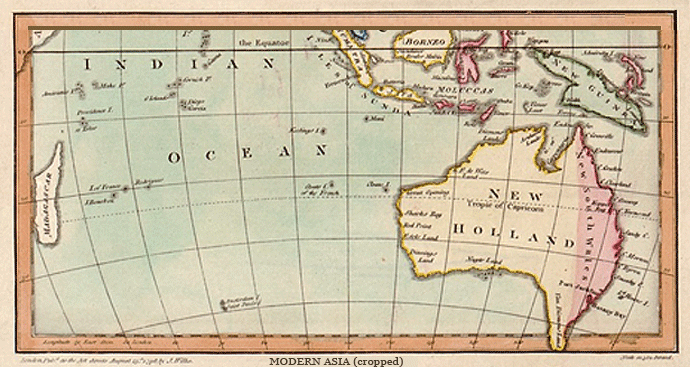
The continent of Australia (then known as New Holland) was incorporated within Asia in this 1796 map
Of course the Crown needs to take responsibility for these people who broke the imposed Crown Law, since they were on these shores as a result of the Crown's less than legitimate claim by Radical Title, but they were encouraged by the actions of the Crown in granting out other folk's lands at their whim, and further, were then tempted by the hope of being richly rewarded with a Property Title issued by the Crown after breaking the Crown's Law. So it seems that private militia acting outside of the Crown's imposed Law was how the Crown gained Sovereignty over the lands of many of the First Nations.
It's layer upon layer of deception and fraud committed by the British Crown.
By using the new name of New South Wales and claiming it as "Our Territory" the Crown claimed Radical Title from the Dutch deceptively in 1786.
Later, on advice from Joseph Banks who sponsored Matthew Flinders' voyage to circumnavigate the continent of New Holland, Flinders began applying the name Australia to New South Wales and the rest of New Holland in 1804 to further conflate the fraud, as if to infer that Cook had discovered the fabled Terra Nullius, some new land which was not New Holland. This would have been news to Cook.
When, in 1770, Lieutenant Cook arrived at the northern most tip of Cape York and found himself in the Strait between New Guinea and New Holland, he wrote that the "discovery" of any coastline west clearly belonged to the Dutch. That's not clearly reflected in Flinders' above map. Also, despite Cook being sent out again in 1773 in search of Terra Australis, we see here that the names Terra Australis and Australia are used by Flinders to describe all of the continent of New Holland.
Later, by 1829, the British Crown claimed Radical Title over all of the western half on New Holland as well, and had their "settlers" treat the lands there as if it too was a Terra Nullius.
The 1763 Royal Proclamation ordered all British Subjects outside of the boundaries of the 13 colonies (the US) until the Crown had made treaties, purchases or rental with tribes westward, but this proclamation seems to have been totally ignored when Britain sneakily invaded New Holland.
The Sovereignty as imposed by Britain was such that the First Nations' Peoples were denied their lands, resources and culture, and done as if there was no existing law of the land.
Constant denigration of the First Nations Peoples has been used to somehow justify such illegality ever since.
The Monarch of Britain's Sovereignty is reliant on criminal actions, criminal even by the Law imposed by the Crown. It's a double or triple whammy. Radical Title done to deceive the Dutch, French, Spanish and Americans in 1786, just so as to solve their overcrowded prisons problem, then the Colonies set up as if the lands were Terra Nullius.
It seems that Journals of Cook were altered such that he gets seen to have claimed “Convenient Situations” on the coast, (contrary to his Instructions) so that the Crown’s claim of Radical Title looks a bit legit. Additionally, Sovereignty was extended further by actions criminal even to their imposed Colonial Laws.

A meeting of Aboriginal representatives, ministers and Prime Minister Paul Keating, 27 April 1993.
National Archives of Australia
Native Title (1993), is a concession by the Crown that there once were land owners on these lands, prior to the Crown's "at Sovereignty" occurring. Exclusive use Native Title only applies to lands where the Crown hasn't already granted the lands out to some one else. Native Title gets issued by the Crown. It's quite perverse, especially when the Crown still claims ownership of resources under any Native Title lands. These are lands where the Crown has never asserted Sovereignty by granting the lands to others, but Governments insist that Crown Law applies on these lands, even though Exclusive Possession Native Title only applies to lands where the Crown hasn't interfered. This is why the Government invented Indigenous Land Use Agreements, also referred to by politicians as "Bucket-loads of Extinguishment".
Because of the illegitimate nature of the Crown's claims, people granted Native Title have very few options to develop their own lands whilst under the jurisdiction of the Crown construct now known as Australia.
What seems clear is that before the First Fleet had left England in 1787, the somewhat clandestine operation to seize a Continent had to be perceived to be done as if was being "Peacefully Settled" (to appease Magistrates and those sentenced to Transportation), and onto a sparsely populated land of nomadic peoples. (legally a terra nullius)
But the only information available to those on the First Fleet were 18 year old accounts of the conditions at Botany Bay, as provided by Joseph Banks and James Matra to the Beauchamp Committee. When they got to Botany Bay and found it unsuitable, they transferred to the much more fertile lands of Port Jackson. The lands around present day Sydney were much more populated than was the area around Botany Bay. Biological warfare became the simple solution.
What British invaders did to secure the Crown's control over these lands was a direct consequence of British desperation to export it's social problems. Two Centuries later, the extent of the genocides committed against the true Sovereigns of the soil is just becoming more widely known. The sophistication of the farming practices, the patchwork burning tied to the Continental Law was suppressed from the education system, so that "white Australia" could feel entitled.

Dr Doyle's sketch book / John Thomas Doyle & Samuel Thomas Gill
National Library of New South Wales
The legal trickery and the denigration of the First Nations' Peoples were all necessary ingredients to carry out this fraud and Crime against Humanity. Those who were the more sinister mass murderers and thieves got remembered as "The Squattocracy" as they graduated into the colonial parliaments, when only males who had Property Titles could vote or become politicians.
It's an ongoing Crime Scene with a script written in England and acted out on the lands now known as Australia. The Rules dictated by the Crown exacerbated racism against the First Nations' Peoples whose very existence was a threat to the legitimacy of the Settler (sic) State.
Dispersing the Blacks, the mass murders, the "breeding them out" policies and the forced assimilation still happening today in more subtle forms, are all resultant from the social engineering orchestrated from London to add these lands to their Empire. The heroic pioneers, rebellious squatters, the gold-diggers at Eureka and the volunteers who went to fight in World War 1 are all framed into an historical narrative to legitimate the Crown's claims over these lands.
Britain set up colonies here to asset strip the lands for the benefit of the Empire, and doesn't it show in the extinction rates on these lands. Britain used it's social rejects to carry out this mission, with rules that socially engineered those arriving.
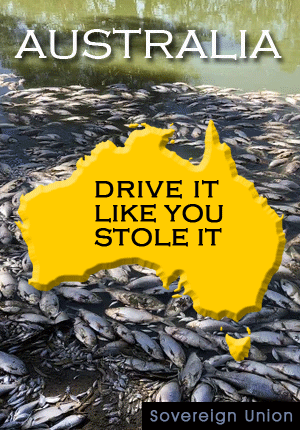
"Drive it like you stole it", they say.
Wake up Aussies, you're being played.
For the past decade or more, Governments have been making concerted efforts to explicitly include Aboriginal and Torres Strait Islander peoples into their Constitution, or more correctly, into the Crown's Constitution. The politicians try to dress it up as some generous "feel good" campaign to improve the lot of the First Nations' Peoples. They even conscript some First Nations' Peoples to their cause, some high profile ones that Governments find easy to work with. Don't be fooled. It's a desperate effort to destroy the unceded Sovereignty of the true Sovereigns of these lands, and in the process, destroy any possibility of this country ever becoming an independent sovereign nation in it's own right.
As Donald Horne wrote in his book, Lucky Country in 1964 "Australia is a lucky country run mainly by second rate people who share its luck. It lives on other people's ideas, and, although its ordinary people are adaptable, most of its leaders (in all fields) so lack curiosity about the events that surround them that they are often taken by surprise."
By Graeme Taylor
Thanks to the many First Nations' educators I'm privileged to learn from.


